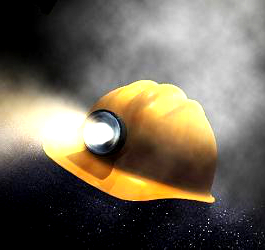Galilee digs to displace jobs
 Experts say coal development in the Galilee Basin would displace production in other coal regions, leading to thousands of job losses.
Experts say coal development in the Galilee Basin would displace production in other coal regions, leading to thousands of job losses.
With global coal demand stable or declining, analysis by the Australia Institute finds large scale coal development in the Galilee Basin in Queensland will significantly increase the supply of traded thermal coal and decrease coal prices.
Lower prices will reduce investment in other Australian coal regions, and by extension employment in the mines of those regions.
New Galilee Basin mines will be large and highly automated, meaning they will employ fewer people per tonne of coal production.
Adani have stated that in their project eventually “everything will be autonomous from mine to port.”
The experts say automated Galilee Basin mines will come at the expense of relatively job-intensive mines in other regions.
Industry analysts Wood Mackenzie modelled the effects of Galilee Basin production on other coal mining regions – the Hunter Valley, Bowen Basin and Surat Basin.
They estimate that Galilee Basin production of 150 million tonnes per year would reduce coal volumes in other areas by 116 million tonnes in 2035 relative to a baseline scenario with no Galilee Basin development.
Based on coal industry analysis, central estimates of employment reduction are 9,100 in the Hunter Valley, 2,000 in the Bowen Basin & 1,400 in the Surat Basin compared to a no-Galilee scenario.
Galilee mines are likely to employ between 7,840 and 9,800 people, resulting in overall negative impact on coal jobs.








 Print
Print